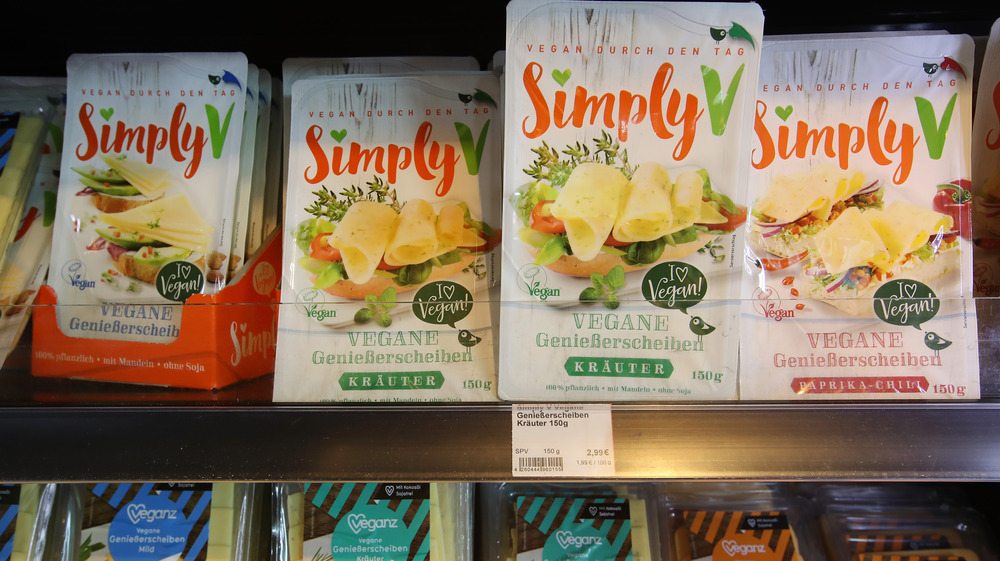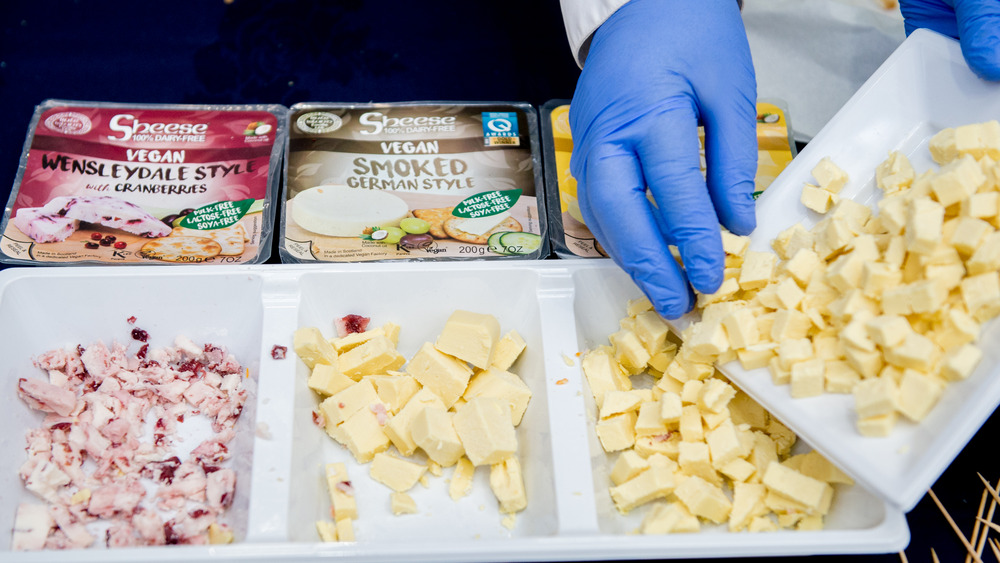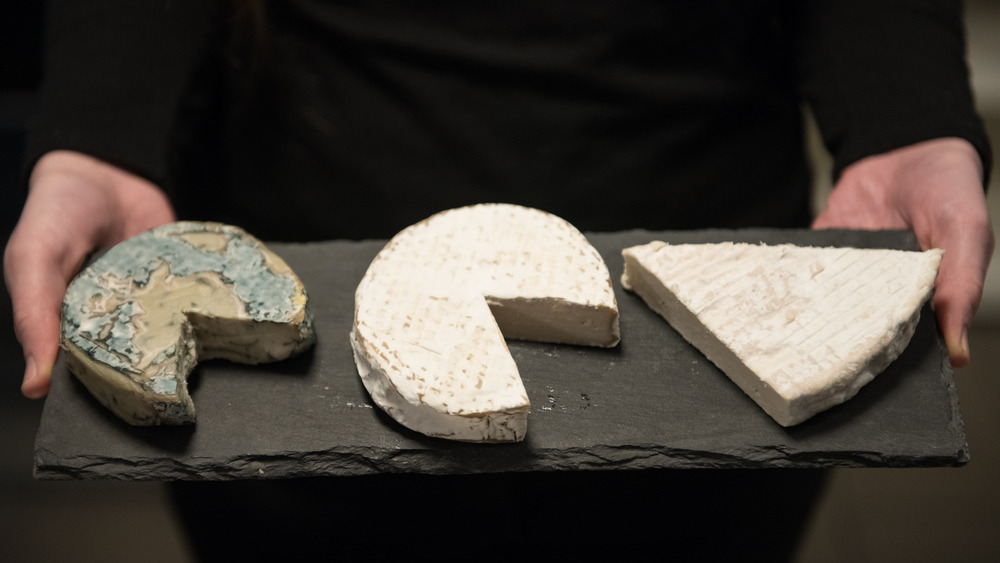The Truth About Vegan Cheese
For many, the most difficult factor in the decision to become vegan is abstaining from cheese. So, as with meat, entrepreneurs have set out to replicate the taste and mouthfeel of cheese without resorting to milk. ChooseVeg lists the typical ingredients for vegan cheese as cashews, tapioca, coconut, tofu, almonds, and nutritional yeast, though other vegan cheesemakers may reach for other soy or vegetable sources. The different bases result in different cheeses; cashews produce a creamy texture, for example, while coconuts and coconut oil deliver the fatty indulgence many associate with dairy cheese. Additionally, I Can't Believe It's Vegan details the similarity in cultivation between dairy and vegan cheeses. While dairy cheeses are made from combining animal enzymes and their milk, vegan cheese makers add the protein of a vegan base to a vegan culture.
What might surprise most, however, is the sheer variety of vegan cheese on the market. The webstore for Riverdel Cheese, a vegan cheese store in New York City, explodes with options that many wouldn't have imagined. There's bleus and bries, mozzarella and feta. Vegan cheese isn't, as one might imagine, a dulled blob of interchangeable soy.
If that sounds too unusual, Healthline assures in their piece on vegan cheese that it can be healthy as long as you stay away from consuming too much in general, and too much of the highly processed vegan cheese products. However, that's the same health advice one should apply to food consumption in general.
Vegan cheese can be good
When approaching vegan cheese, it's best to accept that it's not a magical rendering of cheese without dairy products, but a vegan process attempting to hit similar spots. "I often like to help people understand that vegan cheese is not going to be exact replicas," Michaela Grob, owner of the vegan cheese store Riverdel Cheese, told Martha Stewart. "Very satisfying and delicious, but it's not a replica."
With that out of the way, we can insist that vegan cheese can be good, but the industry is still developing. In 2017, Cooking Light tried a variety of cheeses to see if any had chops. For spreadable cheeses, they found a replacement in Kite Hill Chive Cream Cheese and deemed Chao Creamery Original suitable for cheese slices. However, none of the shredded vegan cheeses shone.
That, though, is only one article examining a growing market of cheeses from a few years ago. Any contemporary search online for good vegan cheeses will result in a multitude of recommendations. While this reflects the internet, as The Spruce Eats wrote in the close of 2020, it also represents the growth of the vegan cheese industry. A few years ago, the vegan cheese market consisted of a handful of brands that all bore more resemblance in "taste and texture to a pencil eraser than actual cheese." Now, the market is both bigger and better as makers have had years to develop better recipes, erasing some of the previous poor products.
The industry's future is bright
Vegan cheese isn't a mere fad that will fade with time. In 2020, Vegconomist noted that the vegan cheese industry's sales hit the height of $2 billion in 2019 (not much next to that of the $118 billion of global cheese sales). Additionally, the inclusion of vegan cheeses in White Castle offerings indicates a headway made by the once eccentric food item.
That route through White Castle, Eater reported, isn't exactly an easy one. The difficulty isn't the lack of good products to offer or competition from the dairy cheese industry. Rather, the difficulty is that the public is unaware that the vegan cheese industry has anything, let alone so much, to offer. Yet One Green Planet also found a growing interest in vegan cheeses amongst health conscious consumers who want the indulgence without the saturated fats, causing them to see the future in this still under-utilized market.
As the century progresses, however, the vegan cheese industry could also position itself as a godsend. In 2019, Live Kindly covered a report published by Oxford University that found that the single biggest contribution an individual can make towards the reduction of carbon emissions is to adopt a vegan diet. While other systemic changes will have to follow, many may find the transition towards a vegan lifestyle ever more bearable due to the vegan cheese industry.


